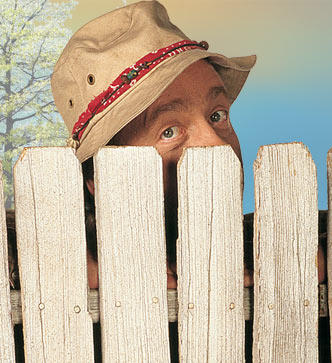Last week, I wrote about how we're starting our first year of Big Spiral History. And boy, did I hear criticism from some of y'all on it! Yesterday, to explain the weirdness of our decision to open the history curriculum by telling multiple cultures' creation stories (the Norse, the Ojibwe, the Greek, the Hebrew, the Chinese, the West African, the Aboriginal, and the Mayan) right alongside the Big Bang account, I laid out our vision of our science curriculum.
To quote from yesterday:
We live in a society that has been built up by millennia of brilliant human discoveries. We’re in the midst of accelerating innovation, and are plunging into a future in which this innovation stands to harm us and to help us.
We can help children understand these discoveries, as if they were uncovering them for the first time. We can do so by tapping into our lust for vividly-told stories, and for solving riddles.
But that doesn't address why we're putting religious stories next to scientific stories. And that, specifically, was what vexed many of you. I got more than one beautifully-written e-mail that ended up arguing, basically, this:
Science describes the world. Religion does something else. Don't mix them.
Or, as one friend put it:
Religion needs to stay out of science's living room, man. And science needs to stay out of religion's!
This, of course, sounds so wonderfully sensible! I think it's also dangerous — one of the modern assumptions that we need to challenge, if we're going to cultivate Renaissance men and women in our schools.
We need to poke holes in all the disciplinary boundaries: religion, science, and everything else.
I recognize I may be wandering into treacherous waters, but I think I can convince you that this is the only way to go.
Let me explain.
In most schools, we ask students to swap out their brains every time the bell rings.
Going from math to literature? Forget all about those puzzles and algorithms you were toying with, and start thinking about novels!
Going from science to history? Banish all thoughts of observations and hypotheses, and get reading this first-person account of the Black Plague!
We tell kids: Don't think about x now: think about y. Scoop out your x brain, and plop in your y one.
To many of us, this seems wrong, wrong, wrong. (And not just because of the "brain-scooping" metaphor!)
We understand that the world doesn't come in neat, pre-made categories. We want to find some way to connect the disciplines because, well, the world is a seamless whole. Chopping it up into "disciplines" (especially in grade school) seems to destroy what we want to study!
To quote the great educator and mathematician Alfred North Whitehead:
[We must] eradicate the fatal disconnection of subjects which kills the vitality of the modern curriculum.
Chopping up the world kills the excitement it can arouse. It's as if we've dismemebered the world, and are surprised to discover that something seems to be missing. Yes: it's dead!
We need to find a way to bring all the world together — math, the sciences, philosophy, literature, and so on.
Only by doing so will we get the meaningful education we want.
But: how can we bring the world together? Three steps, I think.
1. We put kids in contact with as many pieces of the world as possible.
This, in a nutshell, is why our new kind of school has so many hands-on, knowledge-rich curricula: our curriculum of making lunch together, of Learning in Depth, of animals and plants, of dissecting technology, of drawing realistically, of considering a song a day, of watching a movie a week, of tackling really confusing math puzzles, and of interviewing adults.
As Andrew Ng — brilliant founder of Google Brain and creator of the AI that can recognize cat photos — said in a recent interview:
I don't know how the human brain works, but it's almost magical: ...when you have enough inputs, new ideas start appearing.
2. We develop a culture of geeking out.
If we just put kids in contact with pieces of the world, we'd be in danger of just loading up kids with inert facts. It's not enough for them to know stuff: they have to find joy in knowing, and to make meaning out of what they learn.
Kids in our schools need to take pleasure in finding things out, in asking questions, and in searching for answers. We need to find opportunities to puzzle, to argue, and to celebrate breakthroughs!
Or, to put it simply: we need to develop a culture of geeking out.
(Sidenote: wouldn't it be amazing to have a feast in honor of one student's breakthrough?)
For more on how we're accomplishing this, see our Philosophy for Children approach, as well as our practices of book-eating, question-posing, and answer-hunting.
3. We find a way of seeing everything together — an über-lens.
It would be great to develop a culture of geeks — people who knit the pieces of the world together in their own heads. If we just do that, however, we'll not be living up to our ultimate calling: to help kids see how the world is already knit together.
There's an old joke: guy goes to college to study psychology, and discovers that psychology is really biology. No problem, he says — and switches his major. But then he discovers that, alas, biology is really chemistry. But he can take it! Again, he switches his major — only to discover that chemistry is really math.
(At this point, he just says nuts to it all, and majors in business.)
The Universe began as a single point, and the diversity of things we see (atoms, molecules, cells, minds, societies) blossomed out of it. Hence why our Big Spiral History curriculum begins at the beginning of the cosmos, rather than at, say, the dawn of human civilization.
This blossoming outward in the physical world is mirrored by a blossoming in the intellectual world. Human understanding began as myth. The people who first attempted to systematically understand the world (by most accounts, the ancient Greeks) didn't draw up lines dividing the pieces of the world — they dubbed themselves philosophers: "lovers of wisdom".
That is: academic understanding began as a single discipline — "philosophy" — and the diversity of academic fields (physics, chemistry, biology, psychology, sociology) blossomed out of it.
This point is crucial: all of the academic disciplines grew out of philosophy. The first people who wrote about physics were philosophers; so were the first people who did chemistry. Biologists were called "natural philosophers" until the 1800s. Psychology and sociology didn't split off as their own disciplines until the late 1800s.
In our schools, we're repeating this blossoming.
Our species was born hearing stories of what the world is like. Likewise, each of us is born in stories.
Are those stories true? Perhaps, but perhaps not — it depends on which ones we hear!
Like the species as a whole, we each move from uncritically accepting the stories told by the people around us to a careful, systematic understanding.
As I wrote about yesterday, we can guide students to freshly experience humanity's the greatest breakthroughs. This is an opportunity — it's a gift!
But to do it, we need to be willing to help our kids think carefully about any idea that they bring into the classroom. We can't dismiss ideas simply because they've been dubbed "religious".
As the psychologist (and philosopher!) William James emphasized to his pupil Gertrude Stein:
never reject anything. Nothing has been proved. If you reject anything, that is the beginning of the end as an intellectual.
We want our schools to be vibrantly intellectual communities: we can't afford to exclude religious beliefs at the get-go.
My friend wrote:
Religion and science are baseball and tennis. Don't ask them to play on the same field.
Maybe! Or maybe not.
Maybe the world really is 6,000 years old. I want to be open to that possibility. Maybe the world is 13.7 billion years old! I want to be open to that, too. Maybe it's something else — maybe it's not "real" at all, but is just a projection inside a computer mainframe, created 15 minutes ago by a kid in an advanced civilization as a science fair project.
Maybe we're poised on the back of a turtle! Maybe we're in the midst of a cosmic tree, and Ragnorak is coming. Maybe a thousand other possibilities.
The point isn't to ignore evidence and reasons and remain open to all of these — not at all! (That would be intellectual death of another sort.)
The point is to begin open to anything, and then to feel the sheer joy of finding things out.
To quote (again) my favorite line from educational theorist Kieran Egan, on whose thinking so much of our schools are based:
We represent the world to children as mostly known and rather dull.The opposite is the case: we are surrounded by mystery, and what we know is fascinating.
So:
As we start our curriculum, we're less concerned with disciplinary boundaries than with the joy of finding things out. All knowledge — science, religion, math, and so on — begins in philosophy.
Which is to say, in this situation, at least:
Religion, meet science. Science, religion. It's been a while. We're going to have some fun together.




 Our trinity of goals for our school begins with love and progresses, in middle school, to mastery. Our third goal — reaching its apex in the high school curriculum, but present at all grades — is wisdom.
Our trinity of goals for our school begins with love and progresses, in middle school, to mastery. Our third goal — reaching its apex in the high school curriculum, but present at all grades — is wisdom. Ours can be a school of mastery.
Ours can be a school of mastery.